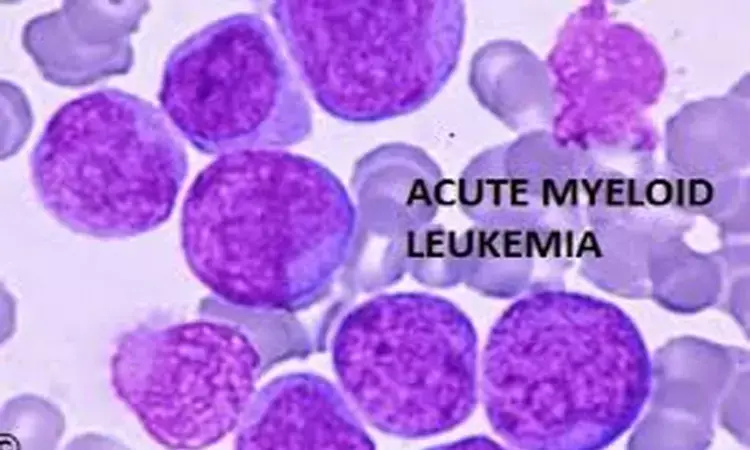- Home
- Medical news & Guidelines
- Anesthesiology
- Cardiology and CTVS
- Critical Care
- Dentistry
- Dermatology
- Diabetes and Endocrinology
- ENT
- Gastroenterology
- Medicine
- Nephrology
- Neurology
- Obstretics-Gynaecology
- Oncology
- Ophthalmology
- Orthopaedics
- Pediatrics-Neonatology
- Psychiatry
- Pulmonology
- Radiology
- Surgery
- Urology
- Laboratory Medicine
- Diet
- Nursing
- Paramedical
- Physiotherapy
- Health news
- Fact Check
- Bone Health Fact Check
- Brain Health Fact Check
- Cancer Related Fact Check
- Child Care Fact Check
- Dental and oral health fact check
- Diabetes and metabolic health fact check
- Diet and Nutrition Fact Check
- Eye and ENT Care Fact Check
- Fitness fact check
- Gut health fact check
- Heart health fact check
- Kidney health fact check
- Medical education fact check
- Men's health fact check
- Respiratory fact check
- Skin and hair care fact check
- Vaccine and Immunization fact check
- Women's health fact check
- AYUSH
- State News
- Andaman and Nicobar Islands
- Andhra Pradesh
- Arunachal Pradesh
- Assam
- Bihar
- Chandigarh
- Chattisgarh
- Dadra and Nagar Haveli
- Daman and Diu
- Delhi
- Goa
- Gujarat
- Haryana
- Himachal Pradesh
- Jammu & Kashmir
- Jharkhand
- Karnataka
- Kerala
- Ladakh
- Lakshadweep
- Madhya Pradesh
- Maharashtra
- Manipur
- Meghalaya
- Mizoram
- Nagaland
- Odisha
- Puducherry
- Punjab
- Rajasthan
- Sikkim
- Tamil Nadu
- Telangana
- Tripura
- Uttar Pradesh
- Uttrakhand
- West Bengal
- Medical Education
- Industry
ASH releases guidelines on Acute Myeloid Leukemia in Older Adults

WASHINGTON--The American Society of Hematology has released 2020 Guidelines for Treating Newly Diagnosed Acute Myeloid Leukemia in Older Adults.The guidelines are intended to help older adults with acute myeloid leukemia (AML) and their health care providers make critical care decisions, including if and how to proceed with cancer treatment and the need for blood transfusions for those in hospice care. The guidelines have been published in the journal Blood Advances.
Each year, nearly 20,000 people receive a diagnosis of AML. The disease generally develops in older people; the median age of diagnosis is 68. AML prognosis in older adults is poor. In fact, on average, a 75-year-old diagnosed with AML usually has a life expectancy measured in just months.
The American Society of Hematology 2020 Guidelines are guided by the principle that throughout a patient's disease course, optimal care involves ongoing discussions between clinicians and patients, continuously addressing goals of care and the relative risk-benefit balance of treatment.
"These guidelines take providers through the conversations they have with newly diagnosed patients, almost in real-time," said Mikkael Sekeres, MD, chair of the ASH AML guideline panel and director of the Leukemia Program at Cleveland Clinic Taussig Cancer Institute. "A discussion between patient and physician is instrumental to creating a personalized treatment plan, and these guidelines are unique in that they keep a patient's goals and wishes front and center in that conversation."
In addition to the paucity of curative treatment options and high prevalence of comorbidities complicating treatment in this patient population, some providers may be reluctant to recommend intensive therapies, or any therapy at all, because they fear toxicities in older patients. And some patients may not wish to spend their valuable remaining time in the hospital.
"We recognize the serious issues that patients face, including the side effects and risks of chemotherapy and time in the hospital. Weighing these issues against possible benefits, including remission and extended life, patients can decide what treatment is consistent with their goals," said Dr. Sekeres.
Many hospice organizations will not allow patients to receive blood product transfusions, often for economic reasons. For AML patients in end-of-life and hospice care, the guidelines recommend that blood transfusions should be considered standard supportive care, as they can address palliative needs related to breathlessness, bleeding, and profound fatigue, as well as improve overall quality of life. This guidance supports an ASH policy statement in support of ensuring Medicare hospice beneficiaries can access palliative transfusions.
Main Recommendations are
1.For older adults with newly diagnosed AML who are candidates for such therapy, the American Society of Hematology (ASH) guideline panel recommends offering antileukemic therapy over best supportive care (strong recommendation based on moderate certainty in the evidence of effects ⊕⊕⊕◯).
The AML guidelines are the most recent product of a larger guideline development initiative for ASH, which includes a commitment to the timely update of existing guidelines and the development of new ones on a range of hematologic conditions. In the coming months, resources to aid in the implementation of the guidelines will be added to the ASH website.
For further reference log on to:
Dr Kamal Kant Kohli-MBBS, DTCD- a chest specialist with more than 30 years of practice and a flair for writing clinical articles, Dr Kamal Kant Kohli joined Medical Dialogues as a Chief Editor of Medical News. Besides writing articles, as an editor, he proofreads and verifies all the medical content published on Medical Dialogues including those coming from journals, studies,medical conferences,guidelines etc. Email: drkohli@medicaldialogues.in. Contact no. 011-43720751


